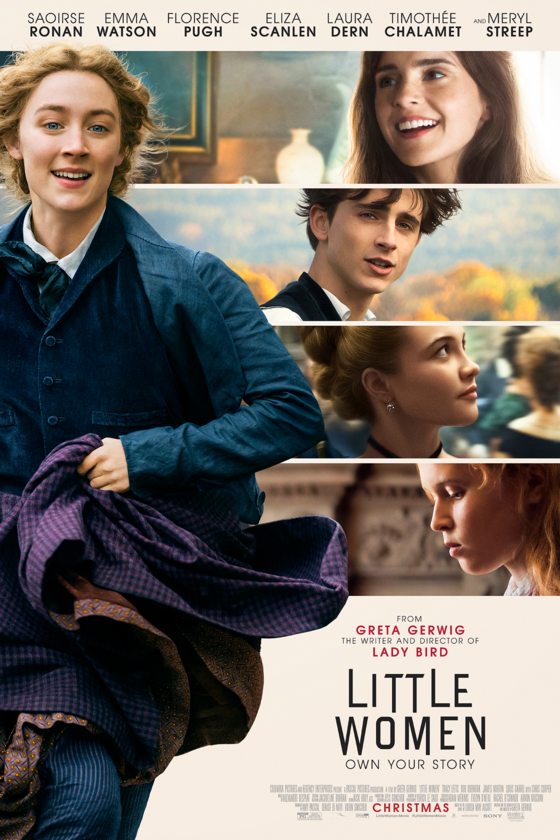Little Women, first published in 1869, has inspired female and male readers alike and been cherished across the world for over a century. The most recent film version of Louisa May Alcott’s novel—one of many movie or television adaptations of the book—was released on Christmas day.
The film, written and directed by Greta Gerwig (Lady Bird), does not unfold in chronological order; instead, it zigzags throughout time to show the March sisters throughout their childhoods and into their twenties. Gerwig’s nonlinear narrative urges viewers to pay close attention, as different scenes alternate between childhood and adulthood without warning.
The film follows the sisters as they grow up. The oldest sister Meg, played by Emma Watson, wants a traditional marriage and motherhood; her sister Jo, however, wants to become an author. The youngest sister Amy, played by Florence Pugh, yearns to become a painter and her sibling Beth, played by Eliza Scanlen, wants to be a musician. Meryl Streep plays Aunt March, the wealthy aunt of the sisters who accompanies Amy to Paris.
Gerwig makes the March household look welcoming and cheery. Costume director Jacqueline Durran does a great job giving the film an antique feel, as the clothes from the movie suit the early 1860s time period well.
The film begins with Jo in her mid twenties, having moved to New York, determined to be a writer. Meanwhile, her sister Amy has moved to Paris to study art where she, by coincidence, runs into Theodore “Laurie” Laurence, Jo’s ex-boyfriend whose proposal we learn was declined by Jo. All the while, eldest sister Amy has been married happily, though her sister Beth, has contracted an illness. Beth’s illness brings all of the sisters back to where they grew up in Massachusetts.
While the film is highlighted with joy and warmth, it does not avoid the struggles the Marches face. Gerwig navigates these difficulties of the sisters to keep the story interesting. These scenes show the sisters facing problems in their marriages and careers, while also being subject to the sexism that Alcott’s novel originally drew attention to.
The strains of the movie nicely balance the happy parts of the Marches’ childhood. This balance allows the mood of the film to be sweet but never too saccharine.
This excellent rendition of a classic American novel blends a warm and happy coming-of-age tale, with a story of real problems and recounts the adversity of being a woman in the past.












